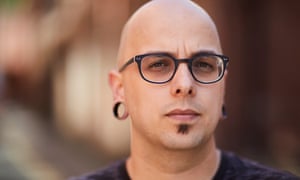Dozens of people who have survived terror attacks, and relatives of those who have died in them, have joined together to urge the public to play an active role in the fight against terrorism and to encourage social media companies to take action against those using technology to drive hate.
The survivors and family members have signed an open letter, published in the Observer on Sunday, to mark the first anniversary of the Manchester Arena attack on Tuesday, which will also be the fifth anniversary of the murder of Fusilier Lee Rigby.
Survivors Against Terror signatories include those who were affected by the attack at the Ariana Grande concert in Manchester as well as the attacks carried out in London, at the Bataclan in Paris, at Brussels airport and metro, in Tunisia and Bali, and by the IRA. They are united in their view that any reaction to terrorism should not be used to drive a wedge between people.

“Terrorists will only win if we let them,” said Dan Hett, whose brother Martyn died in the Manchester attack. “They commit atrocities, spreading fear and anger, in the hope that they will turn our communities against each other.
“That’s why we’re asking people to join the fight against terror, by all playing our part. Most importantly, we’re asking people to take on the hatred that leads to terror – no matter where it comes from, or who it’s directed towards. If we all play our part, we will defeat terror.”
Others who have signed the letter include Charlotte Dixon-Sutcliffe, whose husband, David, died in the Brussels metro bombing; Becky Rigby, the wife of Lee Rigby; Travis Frain, who was injured in the Westminster Bridge attack; Mike Haines, the brother of David, who was killed by Islamic State in Syria; Sajda Mughal, a 7/7 survivor; Brendan Cox, whose wife, the MP Jo Cox, was murdered by a far-right extremist; and Justine Merton-Scott and Tony Scott, survivors of the Bataclan attack.
Haines said: “It’s very important that people from all walks of life who have been affected by terrorism come together to reject the hatred of terrorism. The key messages of the letter are very, very important, especially with the hatred that is prevalent in society these days.”
The letter states: “We are a group of survivors of terrorism. Some of us were injured ourselves, others have lost loved ones. In all cases the scars of those moments are deep. As we know from our own experience, terrorists have targeted the innocent – regardless of faith, ethnicity or politics – for generations. Our members have lost loved ones to nationalists, Islamists and far-right extremists.”
It adds: “What binds these extremists together is not any particular belief – it is the hatred of people not like them and the willingness to use violence against innocent civilians. It is this that we must take on and defeat. When terror hits, we all feel an impotent rage. We all want to help the victims and take on the evil that drives the attacks, but how?”
The letter sets out five ways in which the public can help. These include giving to appeals to help victims and supporting the emergency and security services. It asks: “If you know something or suspect something, tell them.”
It urges: “Please keep your focus on honouring the memory of those who have been killed. Terrorists often attack partly to gain notoriety. We should deny them it; their names don’t deserve to be remembered.”
Another request is for people to “ask media and social media organisations to do far more to take on and shut down those driving hate”.
“We would welcome any move from these social media platforms to come forward and contact Survivors Against Terror so that we can talk about our concerns and work with them in ways to combat the extremism and the hatred that is sometimes on their platforms,” Haines said.
Haines added that he would be thinking about the people of Manchester on Tuesday. “They are in mine and my family’s thoughts, hearts and prayers. We are with them in spirit.Manchester folk showed the rest of the world how to react when terrorism strikes. They came together under the symbol of the bee and rejected hatred across all cultures, faiths, backgrounds and languages. That was quite incredible.”